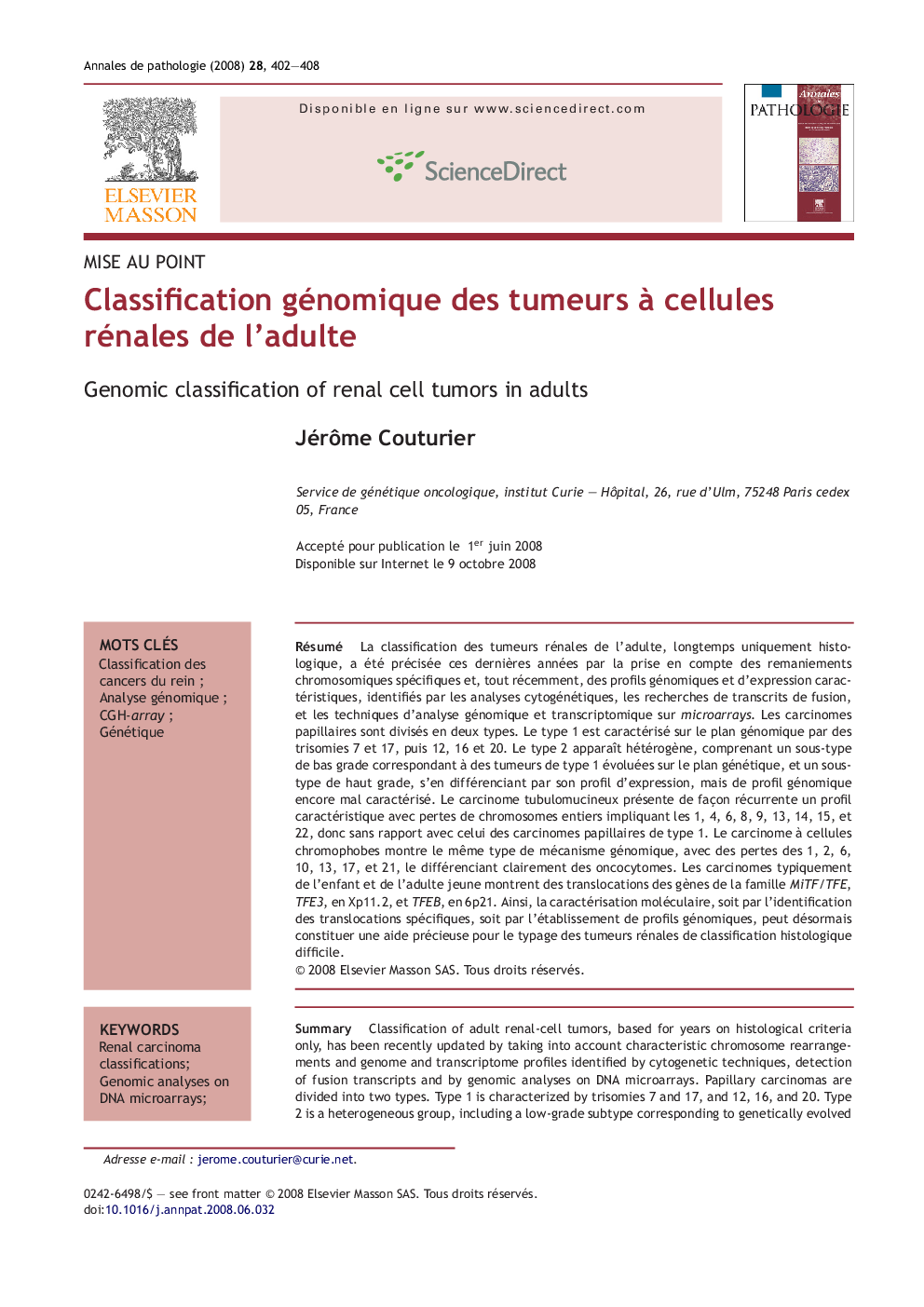| کد مقاله | کد نشریه | سال انتشار | مقاله انگلیسی | نسخه تمام متن |
|---|---|---|---|---|
| 4129258 | 1270956 | 2008 | 7 صفحه PDF | دانلود رایگان |
عنوان انگلیسی مقاله ISI
Classification génomique des tumeurs à cellules rénales de l'adulte
دانلود مقاله + سفارش ترجمه
دانلود مقاله ISI انگلیسی
رایگان برای ایرانیان
کلمات کلیدی
موضوعات مرتبط
علوم پزشکی و سلامت
پزشکی و دندانپزشکی
آسیبشناسی و فناوری پزشکی
پیش نمایش صفحه اول مقاله

چکیده انگلیسی
Classification of adult renal-cell tumors, based for years on histological criteria only, has been recently updated by taking into account characteristic chromosome rearrangements and genome and transcriptome profiles identified by cytogenetic techniques, detection of fusion transcripts and by genomic analyses on DNA microarrays. Papillary carcinomas are divided into two types. Type 1 is characterized by trisomies 7 and 17, and 12, 16, and 20. Type 2 is a heterogeneous group, including a low-grade subtype corresponding to genetically evolved type 1 tumors, and a high-grade subtype, identified by its expression profile which remains to be well characterized at the genomic level. Mucinous tubular carcinoma exhibits a recurrent genomic profile with whole chromosome losses involving 1, 4, 6, 8, 9, 13, 14, 15, and 22, consequently without relationship with type 1 papillary tumors. The profile of chromophobe-cell carcinoma corresponds to the same genomic mechanism, with losses of chromosomes 1, 2, 6, 10, 13, 17, and 21, without relationship with that of oncocytoma. Juvenile carcinoma, that can occur also in adults, shows translocations involving genes of the MiTF/TFE family, TFE3, in Xp11.2, and TFEB, in 6p21. So, molecular diagnosis, either by identification of specific translocations, or by genomic profiling, can be of valuable help for typing renal tumors when histological classification is difficult.
ناشر
Database: Elsevier - ScienceDirect (ساینس دایرکت)
Journal: Annales de Pathologie - Volume 28, Issue 5, October 2008, Pages 402-408
Journal: Annales de Pathologie - Volume 28, Issue 5, October 2008, Pages 402-408
نویسندگان
Jérôme Couturier,